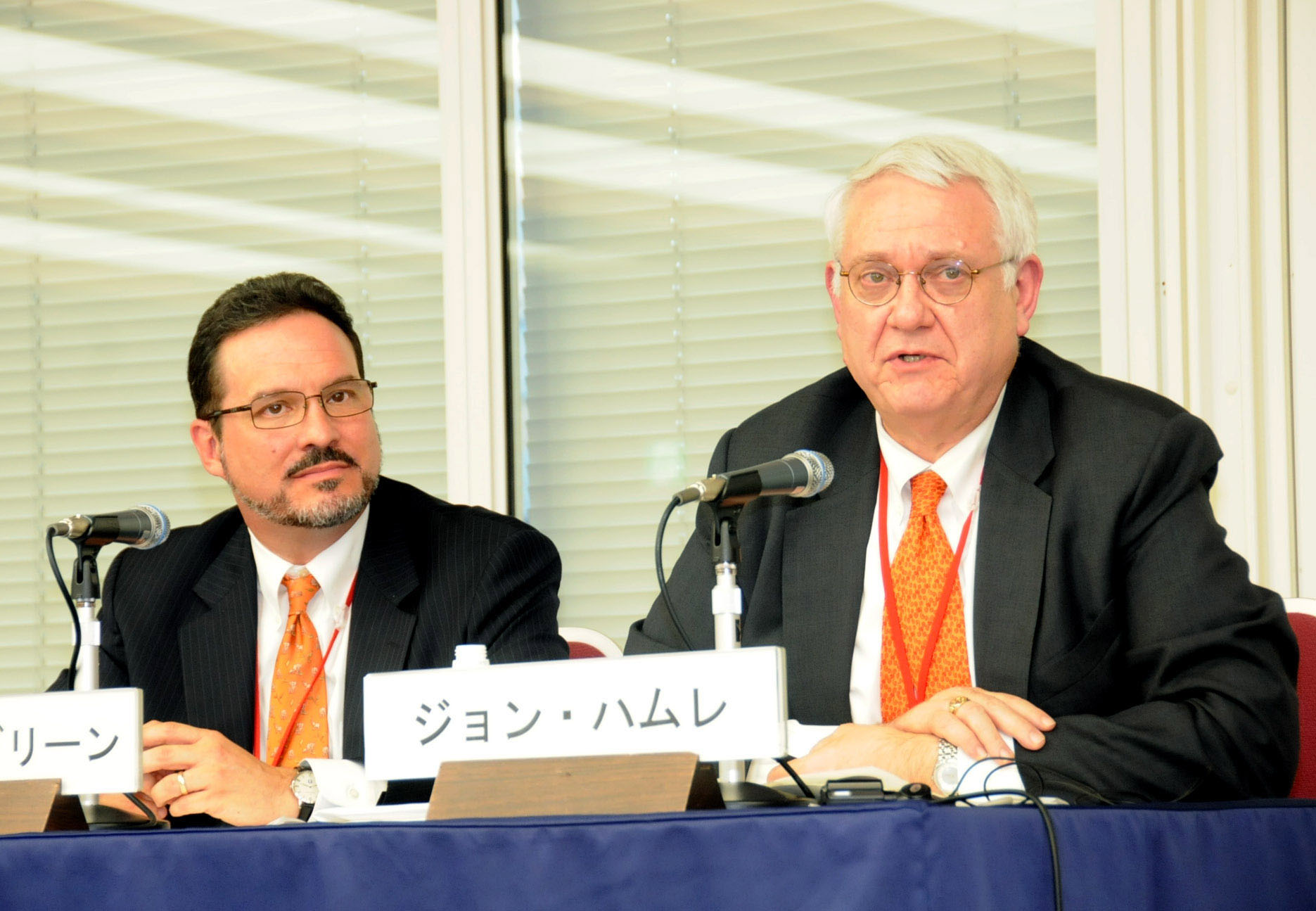A "zero-nuclear" Japan will be a serious concern for the United States as its key ally both from economic and security standpoints, the chief of an influential U.S. think tank said at a recent seminar on Japan-U.S. relations.
The policy set out in September by Prime Minister Yoshihiko Noda's Cabinet seeking to phase out nuclear power generation in Japan by the end of the 2030s — in response to strong anti-nuclear sentiments in the country following the triple meltdowns at Tokyo Electric Power Co.'s Fukushima No. 1 Nuclear Power Plant in March 2011 — is not viable given Japan's vast economic needs, said John Hamre, president and CEO of the Center for Strategic and International Studies in Washington.
Hamre, a former deputy U.S. defense secretary, and his CSIS colleague Michael Green were speaking at a seminar organized by the Keizai Koho Center on Oct. 25 to discuss American policy on East Asia ahead of the U.S. presidential election as well as the imminent change in leadership in China.



